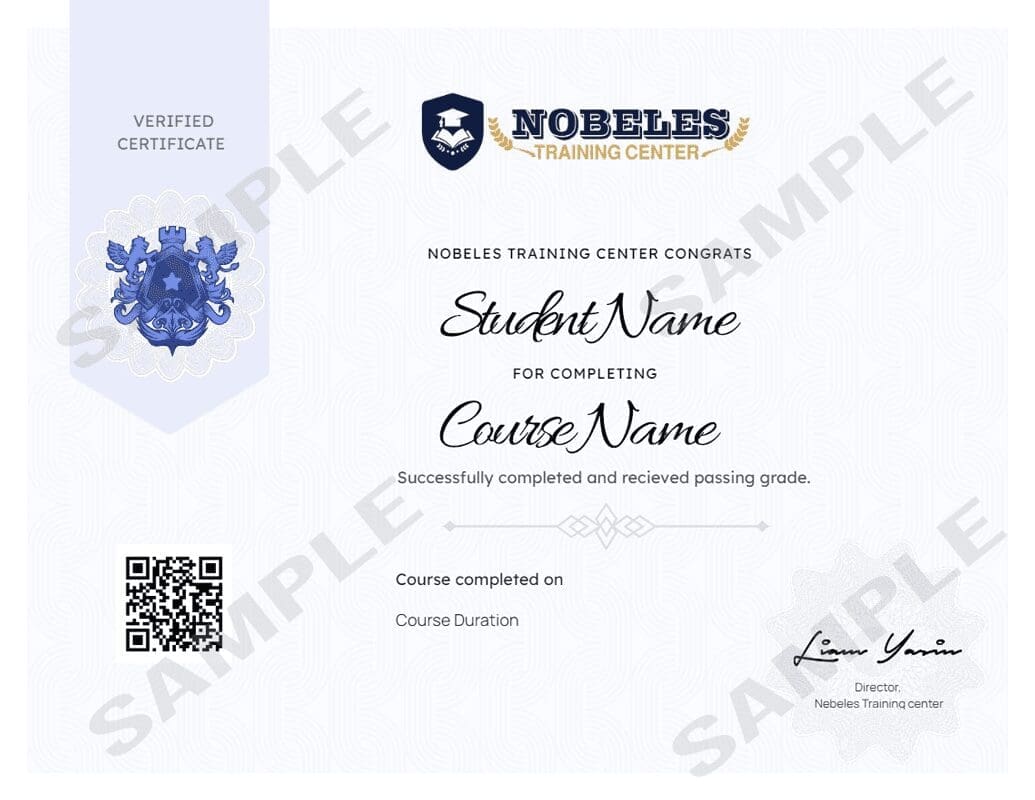Description
Curriculum
Instructor
For many business people, the thought of multi-level marketing can seem kind of scary. It is often misrepresented as a ‘pyramid scheme’, which can make some business owners weary. Others may simply not have any information about it. With a little education and training, many people find multi-level marketing a great tool for their company.
Please enter your name and email to view the content:
Curriculum
- 11 Sections
- 11 Lessons
- 10 Hours
Expand all sectionsCollapse all sections
- How Does Multi-Level Marketing WorkMulti-Level Marketing (MLM) operates by recruiting individuals to sell products while also encouraging them to recruit others. Participants earn commissions on personal sales and a percentage of their recruits' sales, creating multiple income streams.1
- Building a Contact ListBuilding a contact list in Multi-Level Marketing involves gathering names and information of potential customers and recruits. Effective strategies include networking, social media outreach, and offering value through promotions and content.1
- Recruiting New Agents (I)Recruiting new agents in Multi-Level Marketing involves identifying potential candidates, presenting the business opportunity, highlighting benefits, and providing support. Effective recruitment fosters a motivated team, enhancing sales and network growth.1
- Recruiting New Agents (II)Successful recruitment of new agents requires clear communication of the MLM model, training resources, and incentives. Building relationships and addressing concerns fosters trust, increasing the likelihood of joining and succeeding in the network.1
- Training MLM AgentsTraining MLM agents involves providing comprehensive education on products, sales techniques, and recruitment strategies. Effective training includes mentorship, workshops, and ongoing support, empowering agents to achieve success and maximize their potential.1
- Sponsorship/MentorshipSponsorship and mentorship in Multi-Level Marketing provide guidance and support to new agents. Sponsors help navigate the business, while mentors offer experience and advice, fostering growth, confidence, and a strong network.1
- Provide Marketing Presentation TrainingProviding marketing presentation training involves teaching effective communication skills, visual design principles, and persuasive techniques. Participants learn to engage audiences, convey messages clearly, and use tools to enhance presentations, boosting confidence and impact.1
- Provide Social Media TrainingProviding social media training equips individuals with skills to navigate platforms, create engaging content, and implement strategies for audience growth. Training covers analytics, branding, and effective communication, enhancing overall social media proficiency.1
- Provide Training in RecruitmentProviding training in recruitment involves teaching best practices for sourcing, interviewing, and selecting candidates. Training covers effective communication, bias reduction, assessment techniques, and legal considerations, ensuring a streamlined and fair hiring process.1
- Provide Ethics TrainingProviding ethics training educates employees about ethical standards, decision-making frameworks, and organizational values. It fosters a culture of integrity, enhances compliance, and empowers individuals to address ethical dilemmas in the workplace confidently.1
- Post TestPost Test1
Nobles Center

5 Students146 Courses
Review
$290.00
285 students
11 lessons
Language: English
0 quiz
Assessments: Yes
Skill level All levels
Nobles Certificate
At the end of the course, you can download a copy of your certified certificate.
Nobeles Academy
Mobile Application
Download the Nobeles center mobile app from the app app store, click the button below
Courses you might be interested in
Webinars are staples of modern business. Anyone can easily create a webinar, and when they are done well, they can promote your brand and increase your customer base. Webinars that...
-
11 Lessons
$275.00
The internet has forever changed the way that people shop and conduct business. Even experienced marketing professionals need help navigating the pitfalls of internet marketing. Integrating the marketing techniques with...
-
11 Lessons
$295.00
Thanks to the rise of technology and social media, the world of marketing and advertising has become bigger than ever. Marketing has gone beyond the classic printed ads, billboards or...
-
11 Lessons
$295.00
Prospecting and lead generation are essential to the success of any sales organization. Unfortunately, many people view the process as tedious and only engage in the bare minimum. By changing...
-
11 Lessons
$225.00






